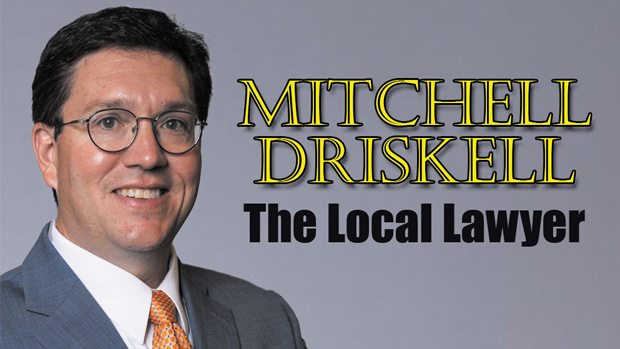
Walking Under the Influence
Under state law, it is illegal for someone to be drunk in a public place in the presence of two or more other people.
Under Oxford ordinance, it is a crime for any person to appear in any public place or on any public street in a drunken condition—there is no “two or more people” requirement.In Oxford, the ordinance says “it shall be the duty of the police officers to immediately remove and jail any such person.”
Ole Miss policy says “Public Intoxication or being impaired or visibly overcome by the consumption of alcohol is prohibited.”
In 1968, in the case of Powell v. Texas, the Texas law against public intoxication was challenged in the Supreme Court of the United States for alleged violation of Eighth Amendment’s prohibition of cruel and unusual punishment.
The defendant, Leroy Powell, worked in a tavern shining shoes. He got drunk every day and was convicted of public intoxication over 100 times in about 15 years.
In the public drunk case that went up to the Supreme Court, Powell’s lawyers argued that he was an alcoholic and was being criminally punished for being an alcoholic. They relied on the 1962 case of Robinson v. California which ruled that drug addiction alone as a disease could not be criminalized.
Unfortunately for Ole Miss students decades later, Powell lost his case with the Supreme Court holding that Powell was not convicted of being an alcoholic alone, but for being in public while drunk.
You have to be in public to walk home from The Square.
A public drunk charge is better than a DUI, be careful and safe.
Trump Stamp
A President has never been prosecuted for having records that should have been given to the National Archives.
He cannot be, because the law has no teeth.
This Trump Mar-a-Lago deal is not about Trump taking documents in general, it is about supposedly “classified” documents. But the president can declassify documents himself and remove any legal reason for the FBI to come get the documents.
Prior to Richard Nixon, a President could do what he wanted with his records—including selling them, burning them, even flush them down the toilet.
The wife of President Warren G. Harding burned practically all of his papers, possibly because he was a notorious ladies man.
Abraham Lincoln’s son kept the Old Rail Splitter’s paper’s at his own house until after World War I.
William Henry Harrison’s papers burned when his hunting cabin burned up.
After Nixon and the Watergate Tapes, Congress decided to make a law that the President’s papers belong to the people and must be preserved. But the Presidential Records Act of 1978 lacks an enforcement mechanism. The FBI cannot raid a former President’s house to get records.
There must be another legal reason.
In the Trump situation, the FBI is claiming violation of classified records laws. The FBI can enforce laws regarding the possession of classified documents. But a President can declassify documents and then the FBI cannot use “classified” as a reason to get a search warrant.
The Pentagon Chief of Staff said that Trump declassified the Mar-a-Lago documents and others back in May.
The debate now is—get this—whether the documents have to have a “Declassified” stamp on them to be technically declassified.
Yep, this whole fiasco is about whether the documents must be stamped “Declassified” to actually be declassified.
These documents were not stamped, therefore, the FBI contends the documents were still classified and subject to federal classified document law—Mar-a-Lago needed to be raided they say.
Other legal experts say that stamping is customary but not required. This whole mess comes down to a stamp.
Fentanyl Will Kill You
The California Legislature recently passed a law that would allow cities to set up facilities where people could use drugs without local law enforcement arresting them.
The law was intended to fight the increased number of overdose deaths due to Fentanyl which will kill you dead in seconds.
Fentanyl was first in pills, then in Cocaine, and now even Marijuana is laced with Fentanyl.
I have had two clients here in Lafayette County die of Fentanyl overdoses. I have had other clients who had Lafayette County family members die of Fentanyl overdoses.
Street drugs are not safe anymore, and I understand the California Legislature’s motive in the new safe haven law.
The California Governor vetoed the law because, in his opinion, there was no plan to carry out and regulate the safe-zone facilities.
There is not really anything interesting about this story, but I wanted an excuse to warn you about street drugs, pills in particular.
Do not take any pills from anyone, ever.
Mitchell Driskell practices law with the Tannehill & Carmean firm (voted Oxford’s Best Law Firm every year since 2010) and has been an Oxford lawyer for twenty two years. You can call him at 662.236.9996 and email him at mitchell@tannehillcarmean.com. He practices criminal law, civil law, and family law.


